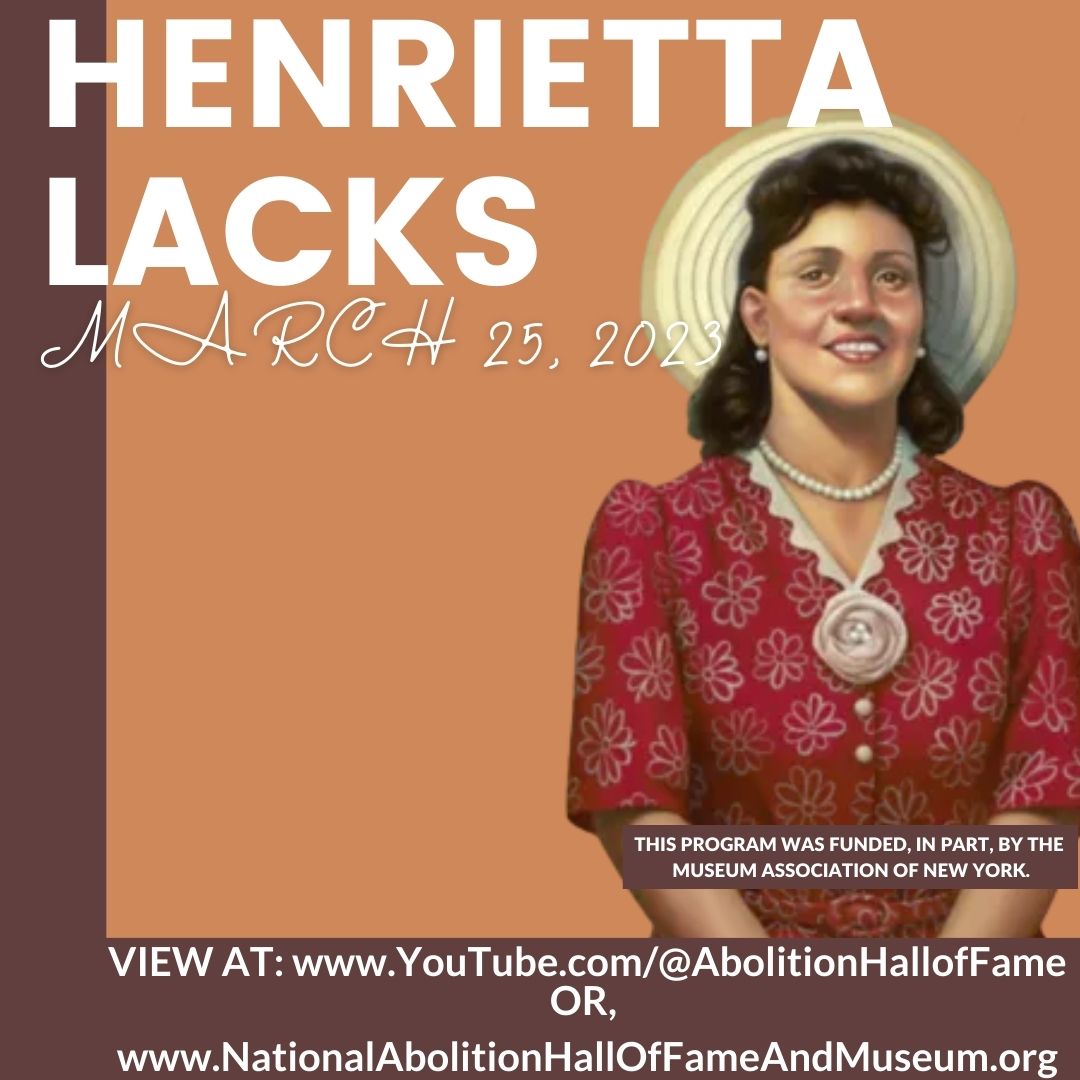The National Abolition Hall of Fame and Museum in Peterboro announced a series of Black Women’s History programs that began airing at midnight March 20, 2023, and daily at midnight through March 25. The series is free to watch on YouTube.com/@AbolitionHallofFame.
Phillis Wheatley (1753-1784)
Phillis Wheatley was a poet and the first Black woman to publish a book of poetry in the United States. She was born in Senegal and sold into slavery at age 7. Wheatley was brought to Boston, Mass., where she was purchased by a wealthy family who recognized her intellectual abilities and provided her with an education.
By 13 Wheatley had written her first poem and by 20 she had published her first book of poetry, “Poems on Various Subjects, Religious and Moral.”
Despite facing racial prejudice and discrimination, Wheatley’s work gained recognition and praise in the United States and Europe. Wheatley’s life and work continue to be celebrated for their historic and cultural significance.
Ida B. Wells (1862-1931)
Ida B. Wells was a pioneering Black journalist, educator and civil rights activist. Born in Mississippi in 1862, Wells faced discrimination and violence from a young age. She became a schoolteacher but left teaching after being fired for her activism. Wells gained national attention for her fearless reporting on lynchings, which she argued were used by white southerners to control and intimidate Black people. Her writings on this topic and her advocacy for racial equality brought her both widespread praise and violent threats.
Wells co-founded the National Association for the Advancement of Colored People and worked tirelessly for the rest of her life to promote civil rights and challenge racial injustice. Wells’ legacy as a trailblazer for both women and people of color continues to inspire social justice activists today.
Madam C.J. Walker (1867-1919)
Madam C.J. Walker was a Black American entrepreneur, philanthropist and social activist who is credited with being the first self-made female millionaire in the United States. Born in Louisiana in 1867, Walker faced poverty and discrimination throughout her early life. She developed a line of hair care products for Black women and established her own company, the Madam C.J. Walker Manufacturing Company.
In addition to her business ventures, Walker was deeply committed to philanthropy and used her wealth to support causes related to education, health care and social justice. She also became involved in the NAACP and used her influence to advocate for racial equality and women’s rights. Walker’s life and work continue to be celebrated as a symbol of Black entrepreneurship, resilience and philanthropy.
Mary McLeod Bethune (1875-1955)
Mary McLeod Bethune was an American educator, civil rights leader and government official who devoted her life to advancing the cause of racial and gender equality. Born in South Carolina in 1875, Bethune was the 15th of 17 children and grew up in poverty. She attended college in Chicago and went on to found the National Council of Negro Women, an organization that fought for the rights of Black women.
Bethune served as an advisor to President Franklin D. Roosevelt and was instrumental in establishing the National Youth Administration, which provided education and employment opportunities for young people during the Great Depression. Bethune also founded a school for Black girls in Florida, which later became Bethune-Cookman University. Throughout her life, Bethune worked tirelessly to promote social justice and equal opportunities for Black Americans and women. Her legacy as a trailblazer in the fight for civil rights and educational opportunities continues to inspire generations of activists and educators.
Ella Baker (1903-1986)
Ella Baker was a Black American civil rights activist who dedicated her life to fighting for equality and justice for all people. Born in Virginia, she was raised in North Carolina and attended Shaw University, where she became involved in student activism.
Baker worked with the NAACP, SCLC and other civil rights organizations throughout her career, organizing grassroots efforts and advocating for the empowerment of local communities. She was a mentor to many young activists, including Martin Luther King, Jr., and played a key role in the formation of the Student Nonviolent Coordinating Committee, a major civil rights organization.
Baker was known for her emphasis on participatory democracy, encouraging ordinary people to take action and make their voices heard.
Henrietta Lacks (1920-1951)
Henrietta Lacks was a Black woman whose cells, known as HeLa cells, became the basis of numerous scientific breakthroughs and medical discoveries. Born in Virginia, she moved to Baltimore where she was diagnosed with cervical cancer. During her treatment, her cancer cells were collected without her knowledge or consent and were found to have an unusual ability to multiply and survive outside the body. These cells were used extensively in scientific research and were instrumental in developing the polio vaccine, studying cancer and advancing our understanding of cell biology.
Lacks’ story highlights important ethical considerations regarding informed consent and the use of human tissue in scientific research. Her legacy is remembered through the Henrietta Lacks Foundation, which supports education and health initiatives in underserved communities. She is sometimes referred to as the “immortal woman.”
The mission of NAHOF is “to honor antislavery abolitionists, their work to end slavery, the legacy of that struggle and strive to complete the second, and ongoing abolition – the moral conviction to end racism. NAHOF believes that, by understanding history, the present may be better understood. For more information, visit NationalAbolitionHallofFameandMuseum.org, nahofm1835@gmail.com.
